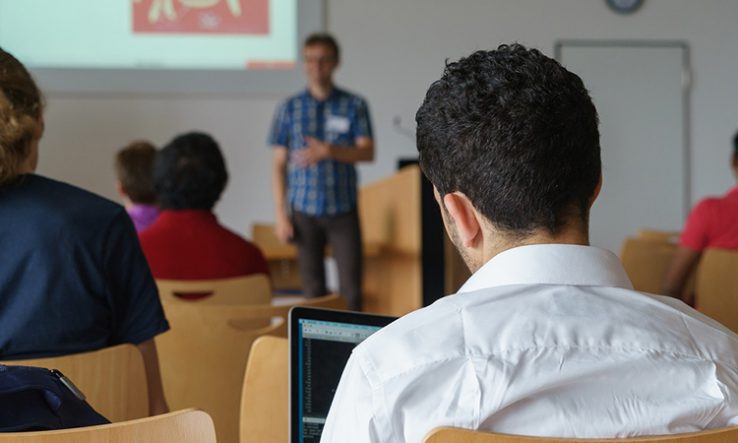
Bavaria and Berlin reintroduce teaching in person, but rectors warn against too much contact
Some German states have made moves to partially open their universities for research or teaching as the country eases social distancing measures designed to combat coronavirus.
A statement by the association of Bavarian universities of applied sciences said that digital teaching will be slowly supplemented by face-to-face events that require special laboratories and work rooms. In the ongoing summer semester, digital education will be prioritised but universities of applied sciences can gradually open up to formats where students are present in person, the association said.
According to the statement, some activity has already started, including the reopening of academic libraries for reading and borrowing. A pan-Bavarian plan puts in place hygiene recommendations, including keeping a minimum distance of 1.5 metres between individuals and wearing a mask that covers the mouth and nose.
“Staying on the university grounds should be limited to an absolutely necessary extent,” the association said.
Universities in Berlin may now open for research and administration but not for teaching, a statement by the city council said. However, exceptions can be made for exams and laboratory work with students, the statement said.
Germany has already reopened many shops and entertainment venues, such as zoos, following a nationwide lockdown imposed in March to reduce infections with coronavirus. On Wednesday, all shops will reopen, pupils will begin to return to school and Bundesliga football is set resume.
The plans for universities, however, are controversial. The German Rectors Conference has pleaded with states to allow universities to deliver the entire remaining summer semester online. The group warned emphatically against a “hasty and unaffordable resumption” of in-person teaching at higher education institutions in Germany.
A version of this article also appeared in Research Europe